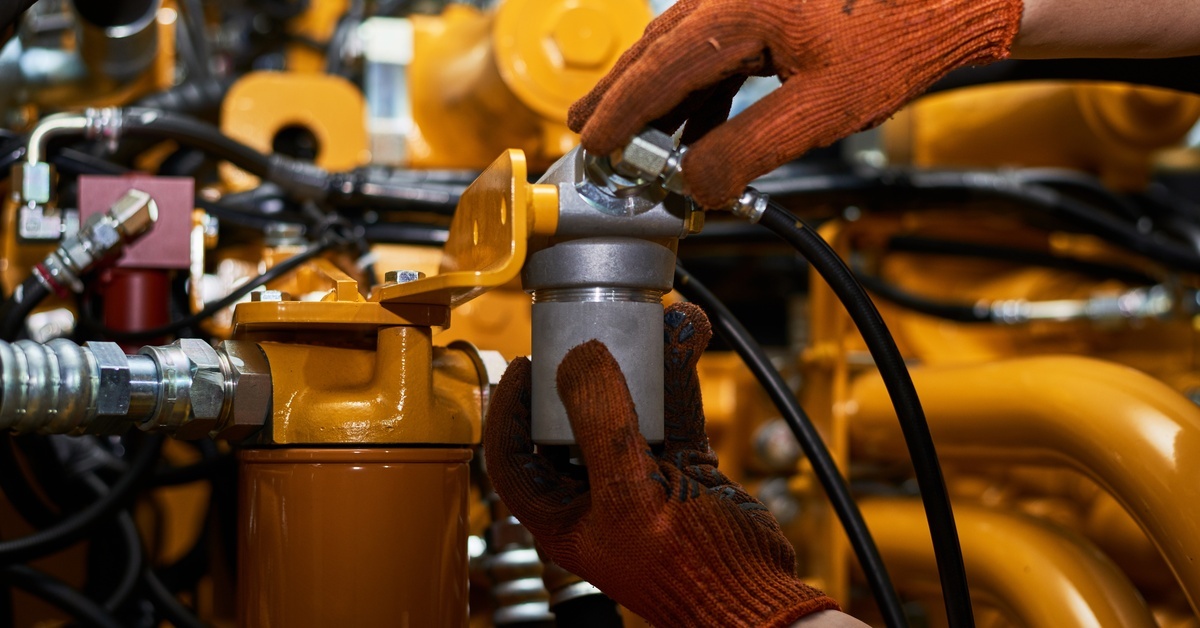Choosing the right heavy-duty hydraulic oil improves machinery’s efficiency, durability, and overall performance. Whether you’re maintaining construction equipment or industrial machinery, selecting the appropriate oil can extend the life of the system.
However, there are a wide array of options. This guide will explain how to choose the right heavy-duty hydraulic oil.
Heavy-Duty Hydraulic Oil
Hydraulic oil is the foundation of a functional hydraulic system, transferring power while protecting components from wear and damage. Manufacturers design heavy-duty hydraulic oil for equipment such as excavators, cranes, and industrial presses that operate under high pressures and temperatures. It helps maintain consistent operation by reducing friction, managing heat, and preventing corrosion.
Why Choosing the Right Oil Matters
The performance of a hydraulic system heavily depends on the quality and compatibility of the oil. Using the wrong oil can lead to increased wear, sluggish operation, and even system failure. Hydraulic oil specifically formulated for heavy-duty use provides the necessary lubrication and protection under extreme operating conditions, ensuring your equipment runs smoothly for long periods.
For example, a construction company operating in high-temperature environments might switch to heavy-duty hydraulic oil with enhanced thermal stability and anti-wear additives. This change is likely to make a noticeable reduction in maintenance issues and downtime on excavators and cranes. As a result, the construction site will improve their productivity and decrease repair costs.

Assess the Machine’s Viscosity Requirements
Viscosity is one of the most critical factors when selecting hydraulic oil. Viscosity refers to the oil’s thickness and ability to flow at different temperatures. Heavy-duty applications typically require oil with a stable viscosity index to perform reliably in fluctuating temperatures. Refer to the equipment’s manual or consult a technician to determine the viscosity grade recommended for your machinery.
The Role of Additives
Additives enhance the properties of hydraulic oil. Anti-wear additives are a common component of heavy-duty oils, providing a protective barrier against friction and wear. Other additives, such as anti-foaming agents and rust inhibitors, improve the oil’s overall performance and longevity. Choose formulations with high-quality additives for added protection and efficiency when evaluating oils.
For instance, a manufacturing facility that runs industrial presses continually should use hydraulic oil fortified with high-quality anti-wear and oxidation inhibitors. The business is likely to reduce unplanned maintenance and increase the equipment’s efficiency, even under intense workloads and heat.
Compatibility With the Equipment’s Specifications
Not all hydraulic oils are compatible with every system, and using the wrong type can lead to serious consequences. Always verify that the oil you select meets the manufacturer’s specifications for your equipment. These specifications consider viscosity grade, additive formulation, and operating temperature range. Using oils that don’t meet the recommended standards can void warranties, cause excessive wear, and lead to system failures.
Compatibility ensures that hydraulic system components such as seals, hoses, and pumps work seamlessly with the oil to prevent leaks, corrosion, and breakdowns. For example, a contractor operating a high-performance excavator is likely to use a manufacturer-approved heavy-duty hydraulic oil to increase efficiency and decrease maintenance costs.
Consider Environmental Factors
Heavy-duty hydraulic systems commonly operate in extreme or challenging environments, from freezing temperatures to dusty construction sites. Environmental conditions can directly affect the performance of hydraulic oil.
In cold climates, consider oils with low-temperature flow properties. High-heat environments require oils with stability under prolonged exposure to heat. A thorough evaluation of your operating environment will help you choose a product tailored to the conditions.

The Importance of Filtration
Even the best hydraulic oil cannot perform effectively if there are contaminants. Dirt, metal particles, and moisture can degrade oil quality quickly, leading to reduced lubrication, increased wear, and eventual equipment failure.
A proper filtration system is essential to maintain the oil’s purity and effectiveness over time. It captures harmful particles before they can circulate through the hydraulic system and damage various components. Regularly examining and replacing the filters—according to manufacturer guidelines or based on operating conditions—prevents buildup and keeps the oil clean. Neglecting filter maintenance can allow contaminants to bypass protection and lead to costly breakdowns. Clean oil means a healthier system, longer component life, and more consistent performance.
Consider Biodegradable Options
Biodegradable heavy-duty hydraulic oils have become increasingly popular for industries looking to reduce their environmental impact. Unlike petroleum-based oils, biodegradable options use base oils derived from synthetic esters or vegetable oils. These oils break down naturally. Therefore, biodegradable hydraulic oils are safer for ecosystems and easier to clean up, significantly reducing the risk of soil and water contamination in case of a leak or spill.
While biodegradable oils may come at a slightly higher upfront cost, they offer long-term benefits such as improved compliance with environmental regulations, reduced cleanup costs, and enhanced public perception. They are ideal for use in forestry, agriculture, marine, and construction industries operating near waterways, wildlife habitats, or protected areas. By switching to biodegradable formulations, companies protect the environment and demonstrate a commitment to sustainable and responsible operations.
What Is Hydraulic Grease?
Heavy-duty hydraulic systems may also incorporate hydraulic grease in addition to hydraulic oil. Hydraulic grease is a thick lubricant that reduces wear in high-pressure moving parts. When selecting hydraulic grease, make sure it is compatible with your chosen hydraulic oil and offers similar performance characteristics under extreme conditions.
Monitor the Oil’s Performance
Once you’ve chosen the right hydraulic oil, ongoing monitoring is critical to prevent unexpected failures. Regularly analyzing oil samples to check for contaminants, viscosity breakdown, or wear particles can alert you to potential issues before they escalate. Set up a consistent maintenance schedule to maximize the lifespan and efficiency of your hydraulic system.
Partner With a Trusted Supplier
Selecting heavy-duty hydraulic oil is not a one-size-fits-all process. Partnering with a trusted oil supplier such as Santie Oil Company ensures you receive expert guidance and access to high-quality products. A reputable supplier will help you understand the nuances of your machinery and recommend the best solutions tailored to your operations.
Make the Right Selection for Long-Term Benefits
Choosing heavy-duty hydraulic oil is about meeting immediate operational needs and planning for the future. Supporting the longevity and reliability of your machinery relies on selecting high-quality hydraulic oil that suits your system’s requirements and site’s environmental conditions.

